Ataul Fatir Tahir, London
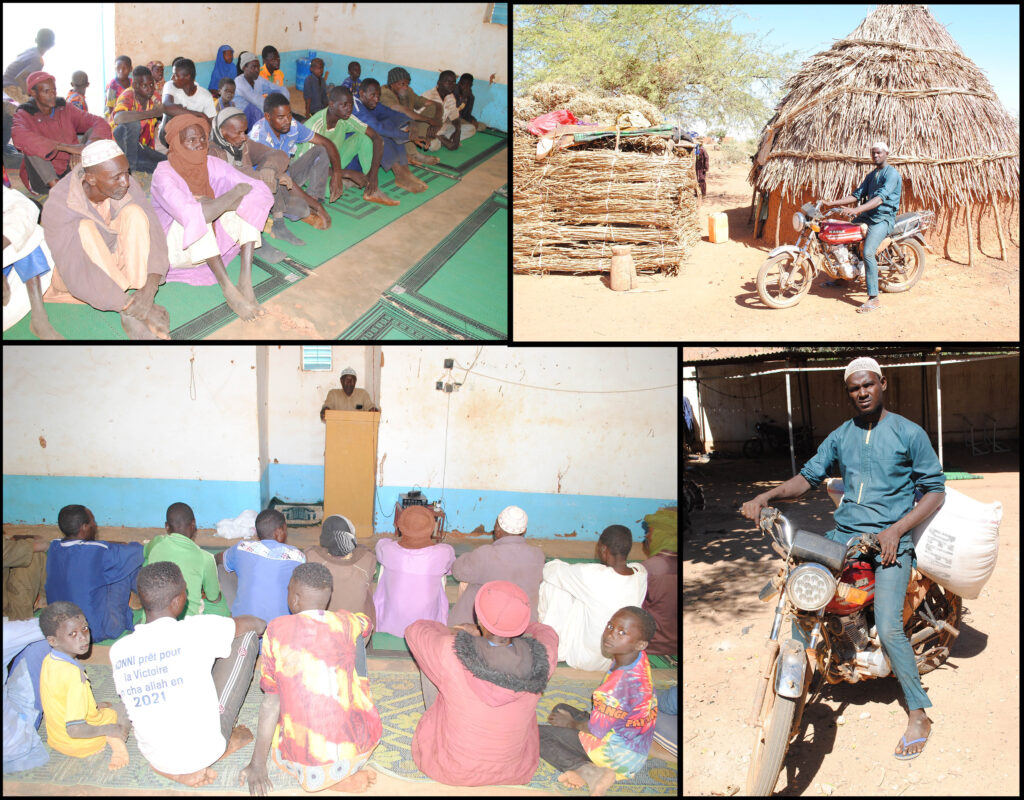
A group of local Ahmadis gather in the remote village of Raddoua in Niger’s Birnin Konni region, awaiting Ahmadi mu‘allims (teachers) who are trudging through hot, dusty and harsh conditions to reach them.
The meeting between both parties is based on faith and love for Allah.
Niger is recognised as the poorest country in the world, but these Ahmadis in far-off villages gather to offer maize, peanuts, corn beans or whatever little crop they have in the way of Allah by donating it to the Waqf-e-Jadid scheme.
Getting to these villages to meet the local Ahmadis is a miracle in itself; a feat the mu‘allims like Hachirou Maman, Muhamado Amsodu and Suleymane Mousa readily take on.
There are no roads that lead to the villages, only paths formed by footsteps, bicycles and motorbikes. The mu‘allims – who all converted to Islam Ahmadiyyat and went on to learn English, Arabic, French and the local Hausa language to preach, have to carry their own water and endlessly push the motorbikes the Jamaat provides them through dry sand and rough terrain.
“We fix the motorbikes every month. It’s a routine,” Idrees Ahmad, an Ahmadi missionary in Niger, tells us with a humorous tone.
“When the rainy season arrives, we cannot use the bikes as they slip and after the rain, the ground is very sandy, so we really have to push the bikes at times and they break down often.”
Yet the local preachers and local missionaries continue their relentless efforts to reach the poor Ahmadis in far-off villages.
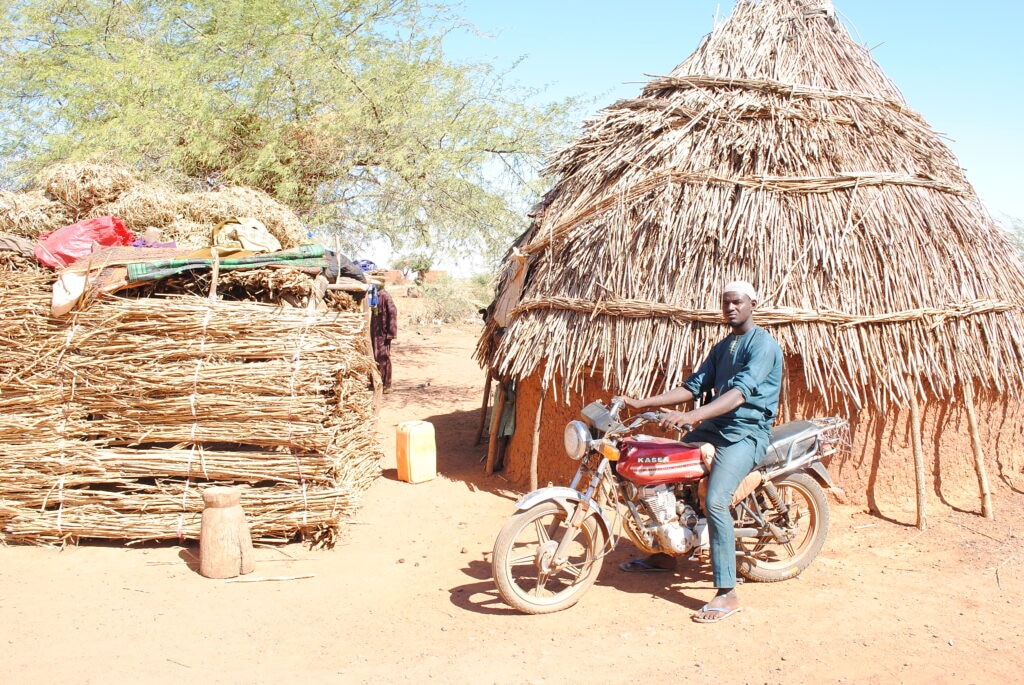
Suleymane Mousa tells us that the roads are completely unreliable, but the task of honouring the financial sacrifices of Ahmadis must continue. Describing the belief and passion for financial sacrifice in Allah’s cause within these Ahmadi villagers, Suleymane earnestly says, “By the grace of Allah, these people are very courageous. They are not very well educated or rich. They are poor, however, Allah the Almighty gave them the faith and courage for spending in the cause of Allah.”
Suleymane describes that the extremely heavy sacks of grains, maize and beans “that people have given in the cause of Allah” sometimes have to be split into two loads and taken back separately and the task of transporting the sack loads brings more challenges. At other times, vans and trucks have to be hired to take the heavy loads as there’s no other way. “We don’t have a lot of resources, so when you need to buy something like clean and pure water, it is difficult. We even have to find clean water elsewhere. At times our motorbikes break down and we have to send them off to get them repaired and then return to resume the work. Sometimes the villages are far, up to 50 km and sometimes we will go there and come back.”
Suleymane reminds us that despite these arduous journeys to reach Ahmadis, there are daily prayers happening at the mosques. There is no port in Niger and it’s almost all desert here. There is little rain and people’s welfare all depends on their crop – but the crop only lasts for a few months, and after that, people have to find ways just to get by.” Idrees Ahmad says. During the season of “plenty”, local Ahmadis start eating from their crop harvest, selling some of it, and giving a portion in Allah’s way.
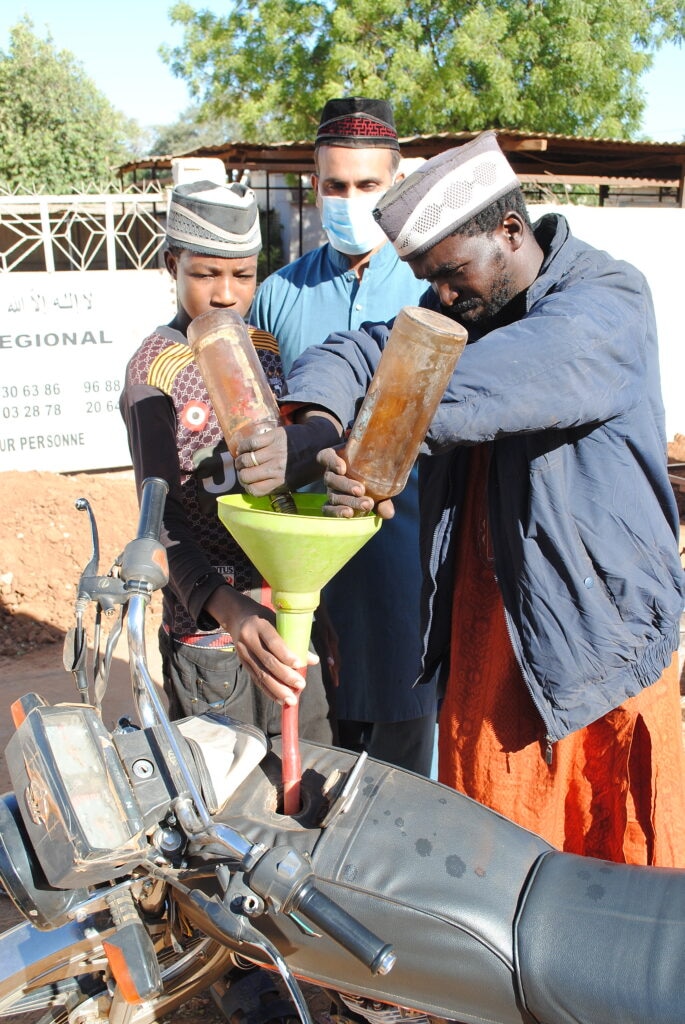
Idrees Ahmad describes the situation:
“These people love Islam – they worship regularly and offer Salat. But they are very poor and their harvest really only lasts for a few months. After their harvest, they will enjoy their food for a few months, but after that, they have to find some sort of work just to survive. They do not have constant work; after their food runs out from the harvest, they do little jobs like keeping an animal and selling it or cutting wood and selling it in the town.
“Everyday commodities like electricity are all luxuries. The Ahmadiyya Jamaat has funded facilities like water hand pumps or a solar panel system to have electricity to charge phones and watch MTA International. However, everything is scarce and there’s a lot of poverty in Niger.
“But despite all of this, these Ahmadis still give something in Allah’s way, however little. You can’t capture the real feeling on camera.
After collecting the sacrifices, the local preachers and missionaries bring the filled bags of crops back to the city to then sell, and use that money to help a scheme that enables Islam’s message to spread across difficult-to-reach areas of the world, like in Niger.
Though the financially restricted Ahmadis in Niger (and elsewhere) cannot give money towards Waqf-e-Jadid, with zeal, passion and belief, they give whatever they can out of their crops. Often it is in the shape of peanuts, corn, maize and beans; however, at times, people also offer a chicken or some eggs – both of which are prized and expensive items in Niger.
Idrees Ahmad tells us that “If someone gives a chicken or some other small animal, it is a huge sacrifice. Even giving an egg is a huge sacrifice – the price of that egg is enough for one meal in Niger.”
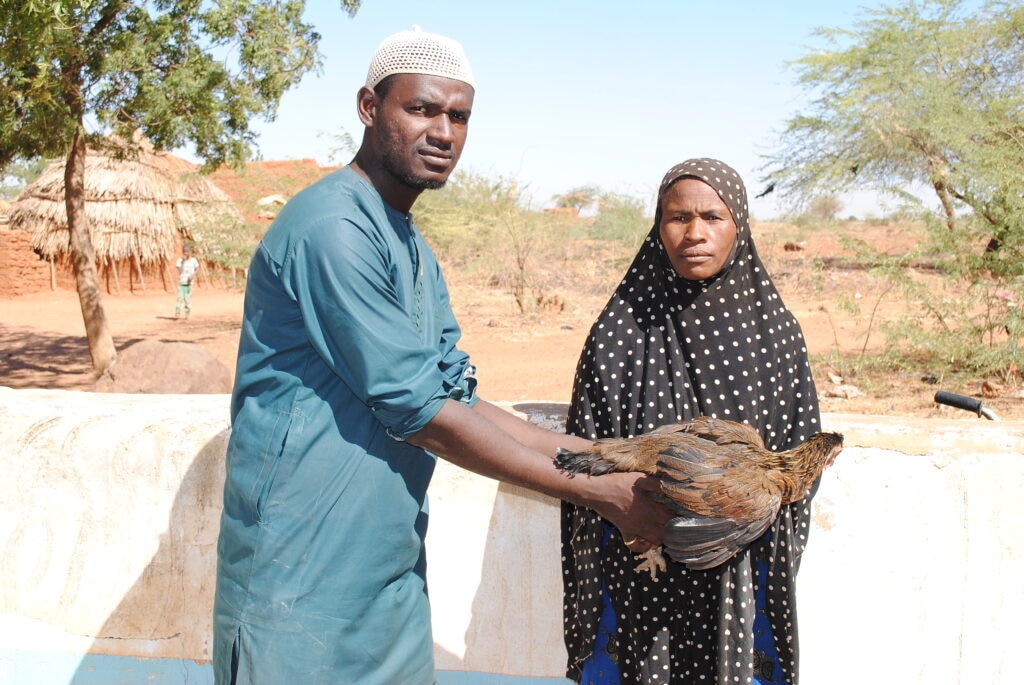
These seemingly “insignificant” sacrifices of grain etc. remind us of the sacrifices of the early Muslims. The opponents of Islam derided them and their efforts but Allah honoured their sacrifices and described how those believers gave alms of their own free will, even though they had found nothing to give save the earnings of their toil. (Surah at-Taubah, Ch.9: V.79)
They would, at times, toil all night to get a small quantity of dates, sell it in the morning and present the earnings to the Holy Prophetsa. (Al-Isaba fi Tamyiz Al-Sahaba, Vol. 7, p. 233, Dar-ul-Kutub al-‘Ilmiyyah, Beirut, 2005)
They were immensely eager to attain the pleasure of Allah the Exalted and they made astonishing endeavours to achieve this. God Almighty accepted their sacrifices and instructed those who came after them to follow their example. The accounts of the poor Ahmadis of Niger take one back to the times of the early Muslims and one is compelled to pray for them as well as those who are trying to follow their example in this era.
In Islam, giving charity is a way to purify one’s heart, which is something that every believer, regardless of wealth or poverty, must do. As a result, the impoverished have been told to participate in financial sacrifice as well, according to their means. Even if all you can afford to give is a single date, you should donate it, the Holy Prophetsa said. (Sahih al-Bukhari, Kitab az-zakat, Bab ittaqu n-nara wa law bi shiqqi tamrah) The significance of giving, even when one has very little, is emphasised in this hadith. Thus, rather than relying on the philanthropic contributions of a select few rich individuals, Islam preaches to instil the sense of financial sacrifice in everyone.
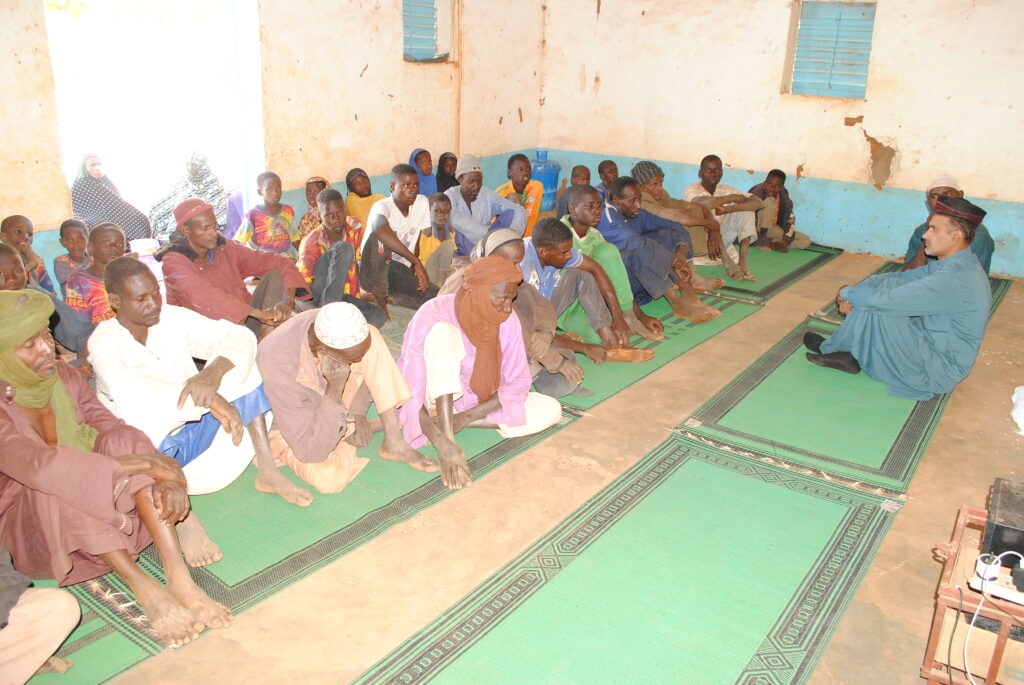
Hence, the Promised Messiahas states:
“The time has now come for all those who consider themselves members of my community to sacrifice their wealth for the sake of this community as well. A person who can afford even a penny ought to donate that penny.” (Noah’s Ark, p. 134)
Last week’s Friday Sermon of Hazrat Mirza Masroor Ahmad, Khalifatul Masih Vaa once again gave a glimpse into how long a way these seemingly small but sincere sacrifices of Ahmadis were going. Those “pennies” may not immediately make a huge material difference but the spirit of sacrifice that Khilafat-e-Ahmadiyya is instilling in every Ahmadi across the world, regardless of their financial status, will only grow and will become the means of bringing about a peaceful revolution and the ultimate victory of Islam Ahmadiyyat by the grace of God. Insha-Allah.


May Allah almighty accept their sacrifices. And bless with physical and spiritual life. Aameen
True faith. True Islam
May Allah Almighty bless them abundantly